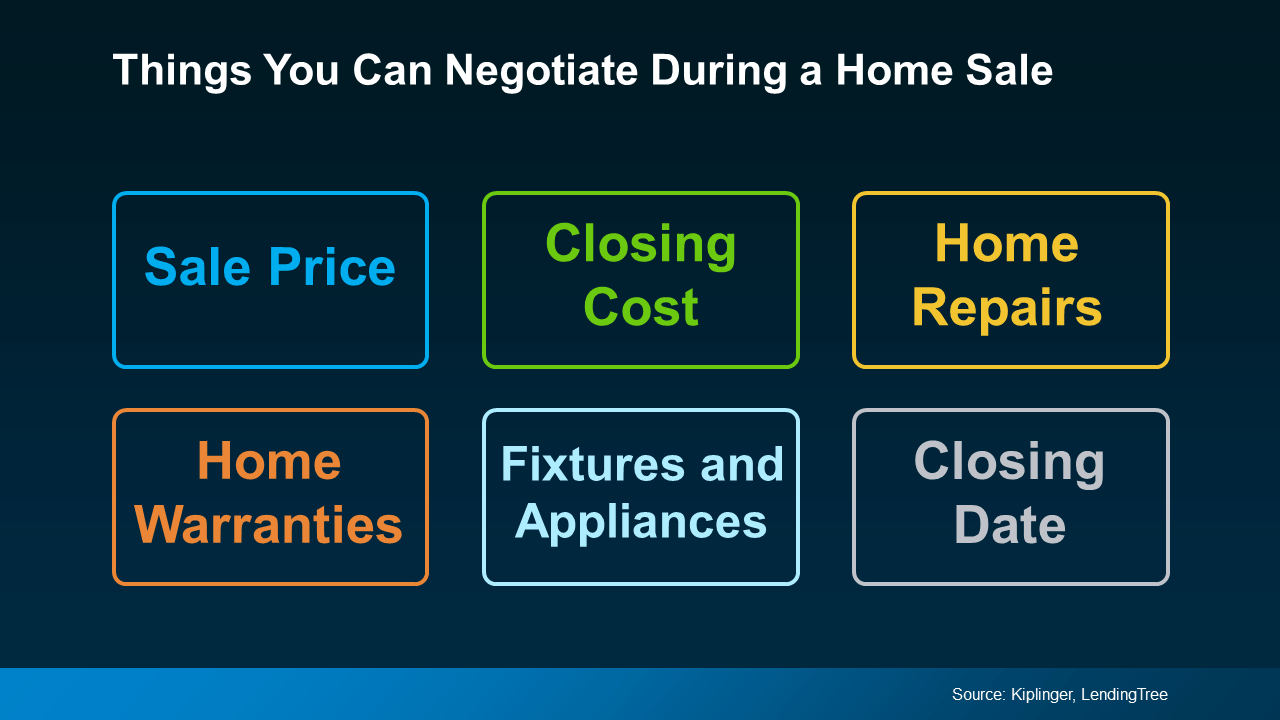
If you haven’t heard yet, homebuyers are starting to regain some negotiating power in the current market. This shift means that negotiation tactics are becoming more important than ever. While this doesn’t necessarily make it a buyer’s market, it does mean buyers might be able to ask for a bit more. So, sellers should be prepared for that possibility and know what they’re willing to negotiate.
Whether you’re looking to buy or sell a home in the Triangle Area, here’s a quick overview of potential negotiations that might come up during your transaction. This way, you’re ready no matter which side of the deal you’re on.
What Can You Negotiate?
Most aspects of a home purchase are open for negotiation. According to Kiplinger and LendingTree, here are some options:

- Sale Price: The most obvious is the home’s price. This lever is being pulled more often today. Buyers don’t want to overpay when affordability is already tight. Sellers who aren’t realistic about their asking price may need to consider adjusting it.
- Home Repairs: Based on the inspection, a buyer has the right to ask the seller to make reasonable repairs. If the seller doesn’t want to do that, they might offer to reduce the home price or cover some closing costs so the buyer can handle the repairs themselves.
- Fixtures: Buyers can also request that appliances or furniture stay with the house when it changes hands. Having the seller include items like the washer and dryer can reduce expenses for the buyer when moving in. As the seller, leaving behind certain items can sweeten the deal for your buyer and allow you to purchase new ones for your next home.
- Closing Costs: Closing costs typically run about 2-5% of the home’s purchase price. Buyers can ask the seller to pay for some or all of these expenses to offset the cash they need to bring to the table.
- Home Warranties: Buyers may also ask the seller to pay for a home warranty. This is beneficial for buyers concerned about potential maintenance costs after taking ownership of the home. Since this concession usually isn’t too expensive for the seller, it can be a good option for both parties.
- Closing Date: Buyers might request a faster or extended closing window based on their own schedule. Sellers can also negotiate for what they need to find the right compromise.
One thing is true whether you’re a Raleigh homebuyer or a seller: your real estate agent can be a significant help throughout the process. Your agent is your go-to for any negotiations. They’ll handle the discussions and advocate for your best interests along the way. As Bankrate says:
Agents have expert negotiating skills. Without one, you must negotiate the terms of the contract on your own.”
They may also be able to discover what the other party is looking for during their conversations with the other agent. That insight can be incredibly valuable at the negotiation table.
Bottom Line
Buyers are regaining some negotiation power in today’s housing market. If you’re a buyer, understanding which negotiation tactics to use can help you feel confident and empowered during your purchase. If you’re a seller, understanding what buyers may ask for gives you the chance to consider what you’re willing to offer.
Want to discuss more about what to expect and the options you have? Contact Linda Craft Team Realtors today.
